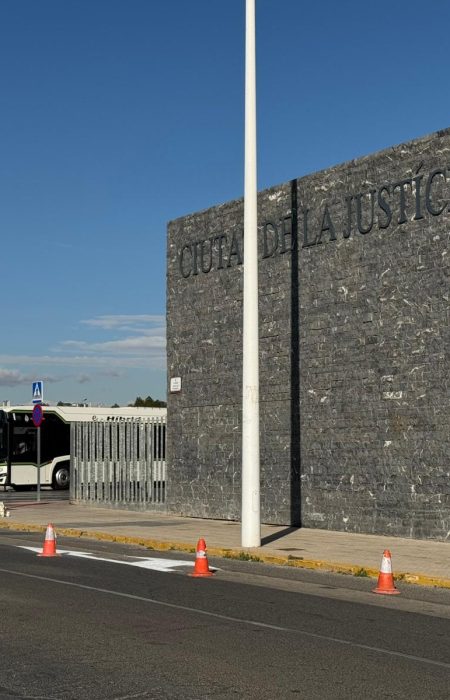The High Court of Justice of the Valencian Community (TSJCV) recently upheld a sanction of eight months’ suspension from duties and pay, as well as a two-year ban from holding management positions, for a high school teacher who was assigned to a school in the southern region of the province at the time of the events. According to the court ruling, three severe offences that were committed during her professional tenure at the public school between 2020 and 2021 have been established.
The first two resulted in her suspension from employment and payment, while the third prohibited her from occupying any educational management positions during the aforementioned period. In the initial instance, the Elche Administrative Court, which heard the initial appeal, reduced the sanction inflicted on the teacher from eight to four months. The court determined that the events, the three sanctions, and the administrative consequences that awaited her were not proportional. This was not to the liking of either the Generalitat or the teacher, who each filed an appeal separately. The administration, as it believed that the context in which the events were committed should be considered in addition to their severity: an educational centre. In reality, the lawyer argued that “teachers are obligated to act with respect and consideration towards students, without the reasoning contained in the sentence, beyond a personal assessment of the conduct committed, reflecting a motivation that justifies the reduction of the sanction imposed to the minimum range of the lowest possible degree,” and the ruling includes this.
The professor requested that the Administration reinstate the unpaid salaries as a consequence of the originally imposed fine, which had been reduced by the resolution of June 13th, 2022. Additionally, she requested that she be compensated with statutory interest from the date of the fine’s implementation.
The Elche court imposed a six-month suspension and salary reduction on the teacher for her “attitude towards students, inappropriate behaviour with colleagues, and habitual alcohol consumption during the school day,” as per the facts that were deemed proven. The court underscored her “alleged abuse of her power over students by using her position as a teacher to ridicule, humiliate, influence, insult, and subjugate them.” It also detailed an incident in which she “allegedly held a student against his will by blocking his path and locking the door, preventing him from leaving the classroom.”

Legislation
The ruling also asserts that the teacher exceeded her authority by interfering with the progress of classes taught by other teachers and discarding the work materials of other groups without the teacher’s knowledge or authorisation.
For these reasons, Article 142.1.e) of Law 10/2010 on the Organisation and Management of the Valencian Civil Service was implemented, which designates the “serious disregard for public employees or the public in the execution of their responsibilities” as a severe offence.
A second violation against the teacher, which is also classified as severe, pertains to “habitual alcohol consumption that impacts the service’s operation.” The first-instance court reduced the two-month suspension and salary to one month, determining that it was impossible to evaluate whether “the appellant engaged in behaviour that humiliated and yelled at her students,” as this had already been assessed and sanctioned in the first case.
Several student testimonies cited in the ruling indicate that “the teacher secretly and repeatedly drank alcohol during the school day.” The court believes that the impact on the service’s operation is clear, as “this is a teacher who is promoting an unhealthy habit among her students.”
The appeal’s arguments
The teacher’s defence contended that the events transpired amid a state of anxiety and that the students misinterpreted or isolated certain actions. For instance, the counsel maintained that the student’s detention in class was “apparently an attempt to regulate the situation” and that there was never any genuine intention to revoke the minor’s liberty. It was also contended that the act of discarding a classmate’s work materials in the bin for his pupils (specifically, a carton of eggs) did not indicate a pattern of behaviour, but rather an isolated incident with no intention of wasting.
The ban from holding managerial positions was affirmed by the Elche Contentious Court, which had partially accepted the teacher’s defence arguments and reduced the sanction from eight to four months. Nevertheless, the TSJCV (High Court of Justice of the Basque Country) finds that this reduction is devoid of the “justification to justify the reduction of the sanction” and concludes that the sanctions imposed by the Administration were proportional, in accordance with the law, and dictated within the framework of the provisions of Article 145.1.b) of Law 10/2010, which prescribes suspensions from duties for this type of violation ranging from 15 days to three years.
Costs were not awarded
The court did not impose the costs of the proceedings on the appellant, despite the fact that it ruled in favour of the Generalitat Valenciana, as there are reasonable legal doubts. The ruling is not yet final and may be appealed in cassation before the Supreme Court or the Administrative Litigation Division of the TSJCV.
The final ruling, which was issued by Judges Ana María Pérez Tortola, Alberto Manuel Ibáñez Bartual, and Mercedes Galotto López, certifies the reversal of the Elche court’s ruling and orders its return to the court of origin. Ultimately, the court’s decision serves as a cautionary tale regarding the obligation of teaching staff to uphold ethical standards that ensure a secure and healthy environment for students within the institutional framework.









No Comment! Be the first one.